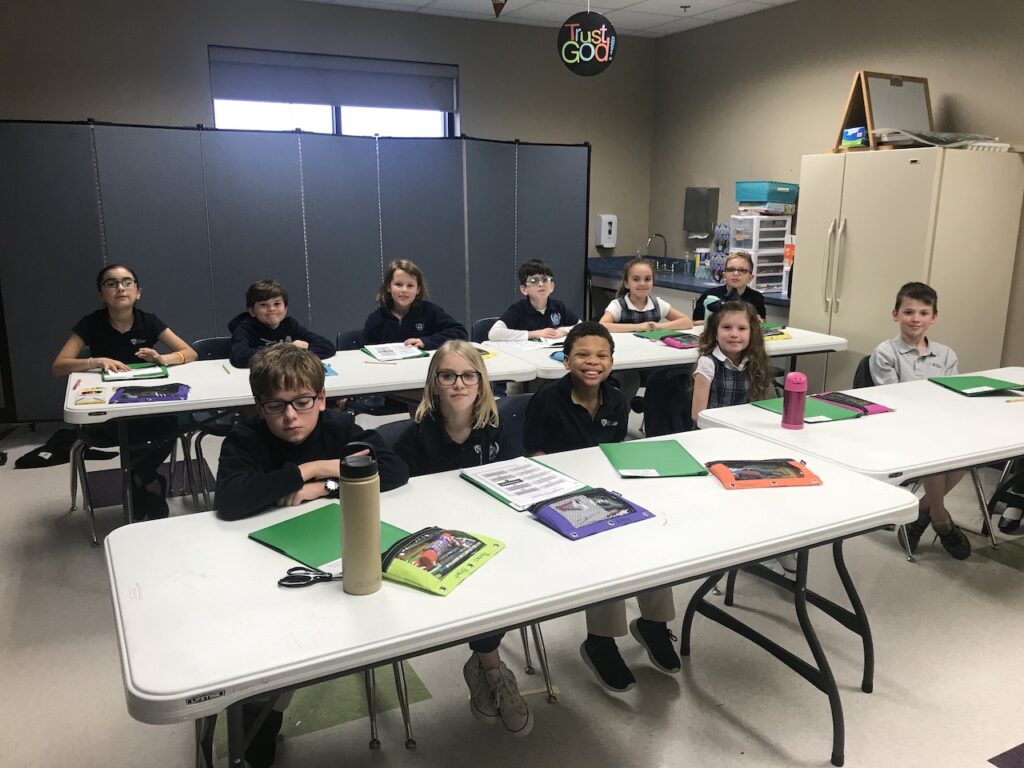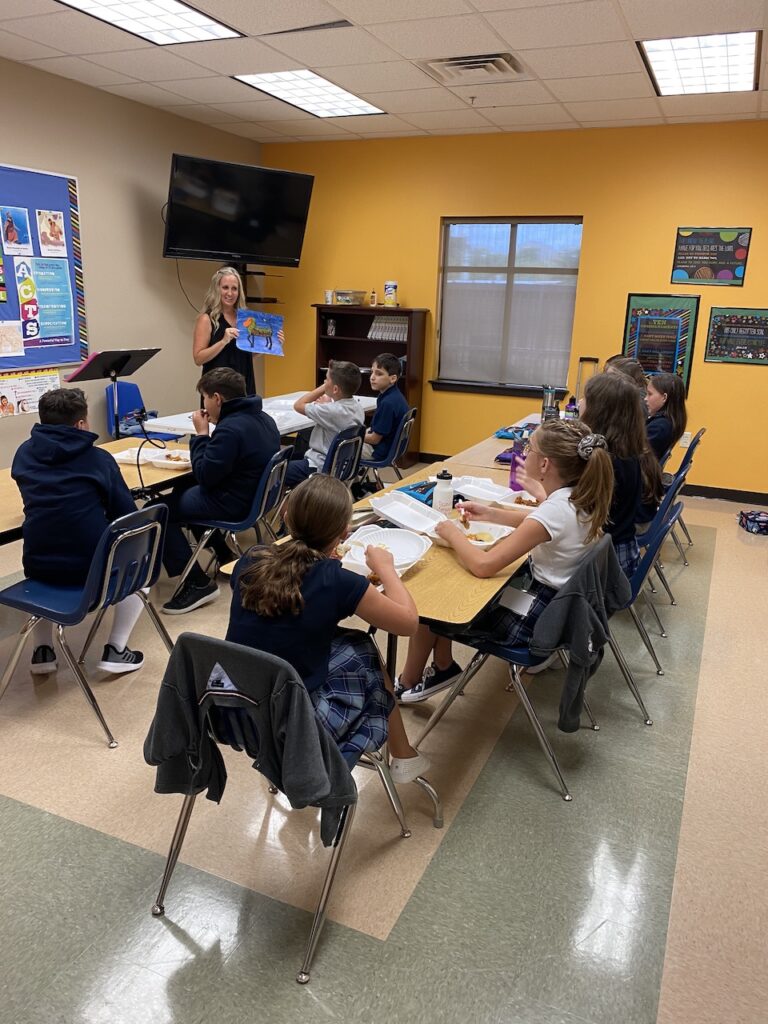Classical Education
Our Classical curriculum uses the history of the world as its organizational theme. All students, from K-12, will study through a four year cycle of world history, and each week all students will be looking at the same historical time period, appropriately taught for their age level. Literature, history, Biblical worldview, Church history, geography, fine arts, government, philosophy, and composition are all drawn from that time period.
Classical curriculum means that academic subjects are studied using the classic texts of literature and history. Students will learn about ancient Rome, for example, by reading the works of Roman writers, appropriately selected for their learning level.
KCA sets high academic standards for our students. Success in a hybrid model school requires a significant and consistent effort by both students and their parents to complete assignments outside of class. For that reason off-campus work is an integral part of academic success at KCA.
Meaningful assignments offer preparation, practice and extension at home on a schedule that accommodates the demands of each family.
Christian worldview is included in all subjects, and all subjects are interrelated.

Grammar: Level K – 6th
This level focuses on the basic facts which must be known about each subject. Emphasis is on mastery and memorization of these basic facts and figures. Examples of this phase could include memorizing the spelling rules, solving math facts and story problems, memorizing a History timeline, studying vocabulary, and learning the grammar of the English language. Various teaching methods are emphasized to appeal to all learning styles.
Subjects covered include history, Bible, vocabulary, grammar, spelling, composition, literature, Latin, math, science, geography, and logic.
Dialectic: 6th – 9th
Students are taught how to analyze, reason, question, evaluate, and critique. Critical thinking skills are covered in all subjects as they learn to apply a biblical worldview. This level is called the ‘dialogue’ stage, and it involves a great deal of discussion. Examples of this phase will include writing to support an argument, learning algebra and mathematical logic, performing critical analysis of literature, or applying the scientific method. Electives are available to our Dialectic students.
Subjects covered include history, Bible, vocabulary, grammar, composition, literature, math, science, geography, and logic.
Rhetoric: 9th – 12th
In the study of rhetoric, students learn how to articulate what they know and what they are learning. This stage focuses on expression, synthesis, and application of a subject. Emphasis is on clarity of ideas. Debate, apologetics, speech, essay writing, public speaking and drama are utilized during this stage. Electives are also available to Rhetoric level students.
Subjects covered include history, Bible, vocabulary, grammar, composition, literature, math, science, geography, and logic.

